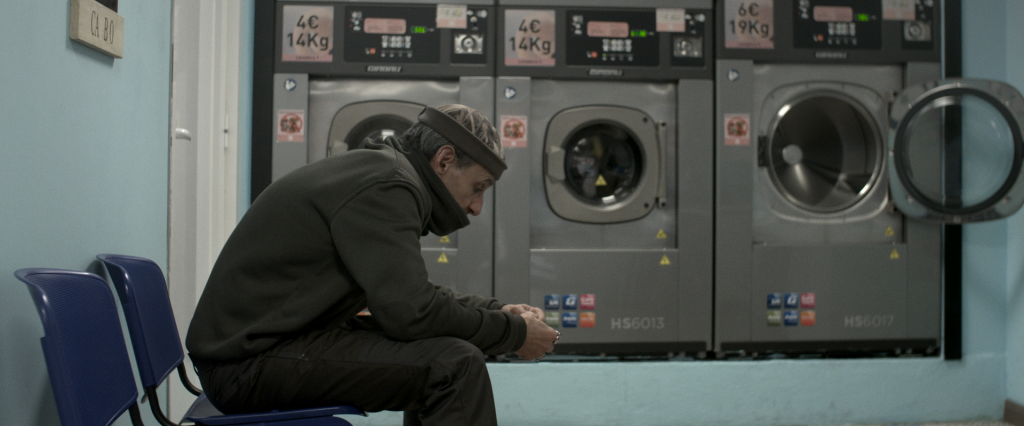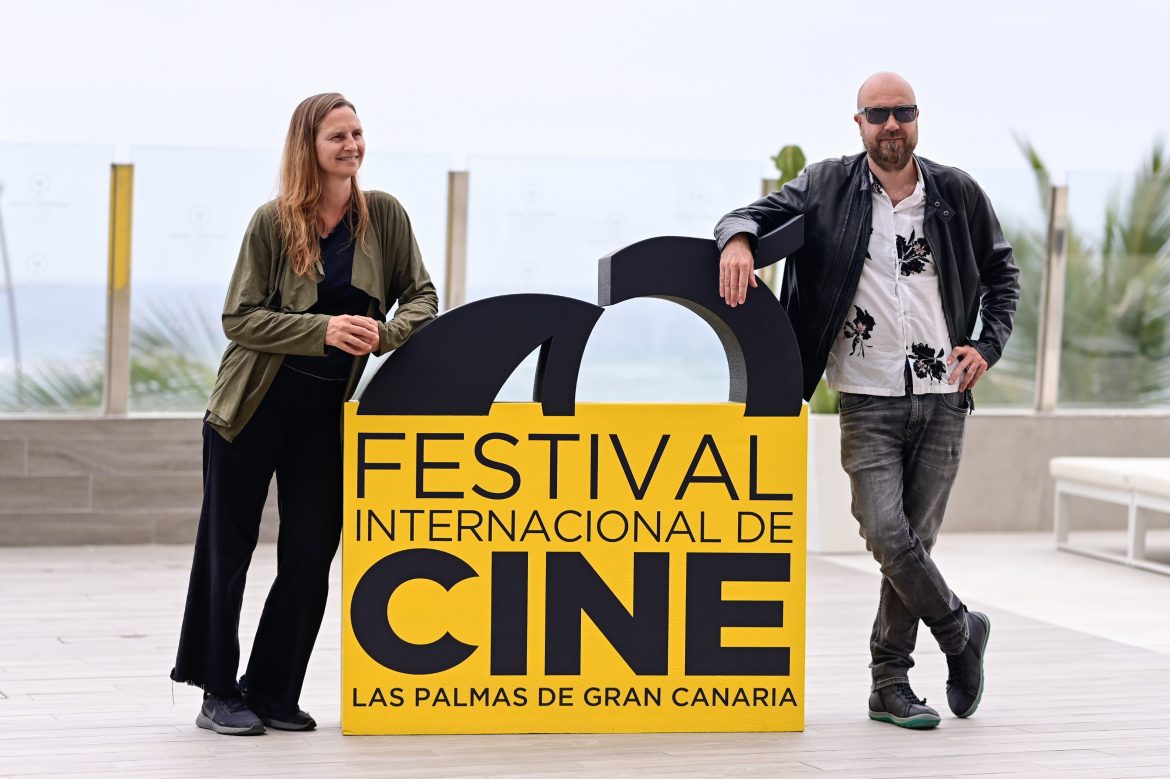The Canarian filmmaker culminates in his documentary an eight-year shooting process, with the figure of Jesús Mira as the axis of a story that is also approached from the point of view of the social worker Elena Matamata
Guerra flees from pamphlet allegations and creates a work approached “from a cinematographic point of view, to tell the story as it is, with everything I have seen and learned in cinema.”
The film competes in the feature film section of Canarias Cinema, and has its precedent in the short film Apache, which already advanced the story of Jesus in 2019

Las Palmas de Gran Canaria, Thursday, April 13, 2023.- Eight years of shooting: the process to complete I Had a Life has turned out to be a whole exercise of perseverance, with the desire to tell a complex and polyhedral story, under the direction of Octavio Guerra. The result is a reflection on the current welfare model for the people in greatest need. But, above all, it is a demonstration of cinema, the ultimate objective of the Canarian filmmaker, a regular at the Las Palmas de Gran Canaria International Film Festival. The film opens the competitive feature film section of Canarias Cinema on Friday, April 14.
The beginning of I Had a Life can be perfectly traced. The story starts in the short film that Guerra made in 2019, Apache, which already portrayed Jesús Mira’s point of view. Without a home or resources, he still intended to make a living by his own means, something that ultimately the public welfare apparatus did not facilitate him. Jesus appears once again as one of the central figures of the feature film now presented by the Canarian director, which also shows other points of view. The most relevant is that of Elena Matamata, coordinator of the shelter and in the process of writing her doctoral thesis.
“We started filming Jesus many years ago, although it all really began as something more choral,” Guerra recalls. “The film,” he adds, “already reflects the idea of telling his story and this subject in particular. We went to those raw materials we recorded eight years ago, and then we decided on creating a kind of loop. We start by introducing Elena, in the middle. And then, when we go back to Jesus, we restart that loop. The idea is that this situation doesn’t end. People go back to reintegrate and then go back to the street.”
The director assumes his documentary’s strong social background, yet he stresses that his aim is only focused on making a film. “On a symbolic level, this idea of starting over can be seen in the film in the shots of the washing machine, in the Ferris wheel or in Jesus’ own speech, which is repeated again and again. That’s what we wanted, because that’s the picture for homeless people right now. It is something more welfare than anything else, which means that the final objectives are not fulfilled.”
Dealing with the characters in his film project has been uneven, as Guerra himself admits. “Working with Elena has been very easy. Her energy and even her honesty are captured on screen. With Jesús it has been more difficult, because he had his ups and downs, and moments in which he disappeared.” Although, he remarks, “we are always in contact with him. I can see him sometimes. Now I live two streets away from him (in Valencia), he has achieved a certain stability in the housing field. He has his space, and he is very stable. Though he is always on the tightrope. In the end he can’t get social policies to help him, and it’s his own networks that make him survive.”
Jesus’ life adventure turns out to be an efficient attraction factor for the audience, in a film that also portrays Elena’s concerns, at the other end of the story. “It is true that in the film we come across her contradictions. Because she realizes that people are leaving her, and she can’t do much for them,” says the director. “She sees that there is a certain failure in the institutions themselves, in the sense of a lack of resources, rather than the system failing.”
Octavio Guerra notes how “we’ve been following the character and we got hooked on his discourse. There are people who begin to reintegrate with specific programs, but who have their glass ceilings. But suddenly someone like Jesús comes to light, who wants something more, and you realize that you can end the rest of your days there. It all ends there. These people have no access to housing and living on the street has created a defect, not only at the level of using, which is their anesthesia, although there are many reasons why they fall into using. Jesus represents that person who wants to work and to whom the social services say no, that this is as far as he can go. When he realizes this, he begins his struggle for survival, with his own resources, with his own network and contacts.”
The documentary, with an indisputable truth that is always palpable on the scene, does not fall, however, into explicit vindication. On this point, Guerra points out that “in the end, when you tell stories you try to make them cinematographic, with everything you have seen and learned in cinema. What interests me,” he stresses, “is to tell the story as it is, I don’t like it to be close to a pamphlet.”
Octavio Guerra has already accumulated a remarkable career as a filmmaker. A regular participant in the selections of the Las Palmas de Gran Canaria International Film Festival, he’s been present in his homeland’s contest with titles such as the short films The Russians’ Machine (2014, nominated for the Goya), Sacristán (2015 Richard Leacock Award for Best Short Film), the aforementioned Apache (2019) or Heurtubise (2020), another title on which the Canarian filmmaker is still working with the intention of turning it into a feature film, in a long and continuous shooting process. In 2018 he also presented at the festival his feature film Searching for Oscar, a documentary in essence, but with added fiction, that was praised by critics. Guerra regularly collaborates with Elisa Torres in production (Calibrando Producciones), as it’s also been the case in I Had a Life.
“The Las Palmas de Gran Canaria Film Festival,” says the director, “has been one of the places where I’ve grown the most and where I’ve been able to make friends and bring together a significant generation of filmmakers in the Canary Islands.” According to Guerra, he likes to feel like another member of the Festival’s audience: “we try to take this week to see screenings and what our colleagues are doing.”
SCREENINGS
DATE – TIME – SESSION – SCREEN
14 APRIL 10:00-11:30 JURY AND PUBLIC – CINESA EL MUELLE SCREEN 9
14 APRIL 19:45-21:15 PRESENTED BY OCTAVIO GUERRA & ELISA TORRES – CINESA EL MUELLE SCREEN 9
18 APRIL 18:00-19:30 Q&A | OCTAVIO GUERRA & ELISA TORRES – CINESA EL MUELLE SCREEN 8
Share this Post

